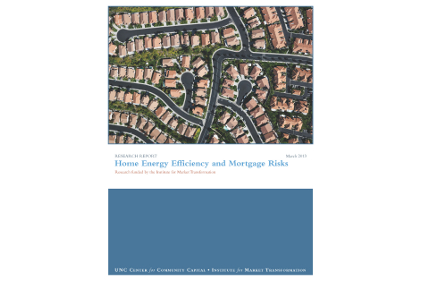“Consumer and industry acceptance of energy efficiency is high. But the lack of broad consideration of potential energy savings in the mortgage underwriting process still prevents many moderate- and middle-income homebuyers from fully enjoying the cost savings,” said Roberto G. Quercia, the center’s director and one of the authors of the study. “Since our study findings now show that energy efficiency is strongly and consistently associated with lower mortgage lending risk, lenders and policymakers have one more reason to promote it.”
The report is the first academic study to assess the linkages between home energy efficiency and mortgage risks. It uses a sample of 71,000 home loans from 38 states and the District of Columbia. The sample is restricted to single-family, owner-occupied houses whose loans originated during 2002-2012 and were used for purchase only.
About 35% of the houses in the sample were Energy Star-rated for efficiency, with the rest forming a control group. Controlling for other factors, the odds of a mortgage default on an Energy Star residence are one-third lower than those of a home in the control group. A mortgage holder on an Energy Star residence is also one-quarter less likely to prepay. Since lenders consider prepayment a risk, these loans are potentially more valuable to them.
“It stands to reason that energy-efficient homes should have a lower default rate, because the owners of these homes save money on their utility bills, and they can put that money toward their mortgage payments,” said Cliff Majersik, executive director of IMT.
Click here to download the report.




